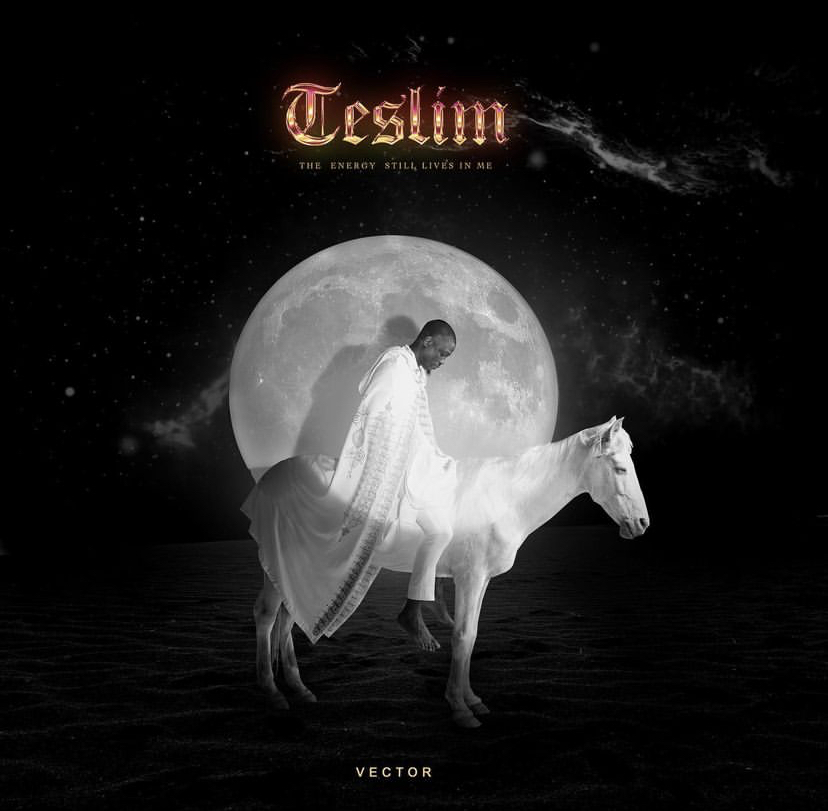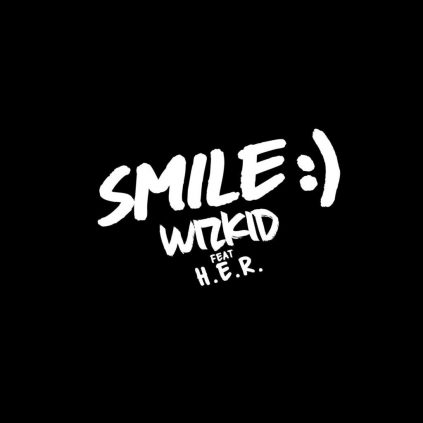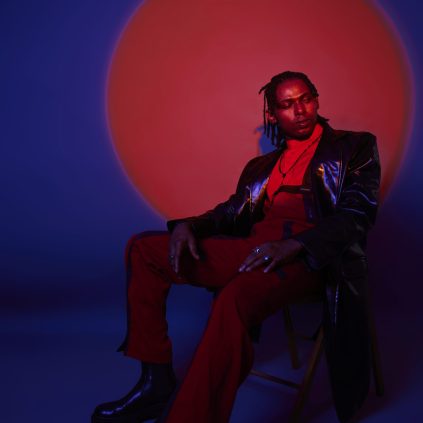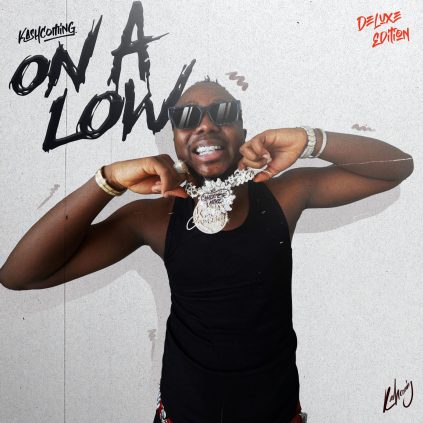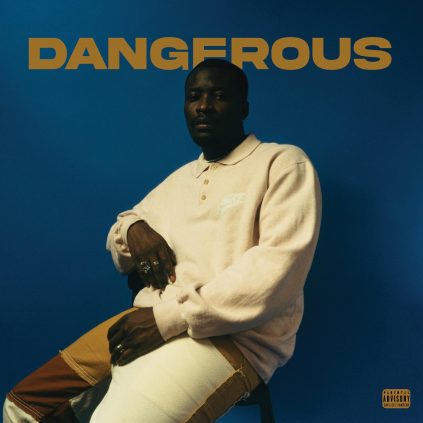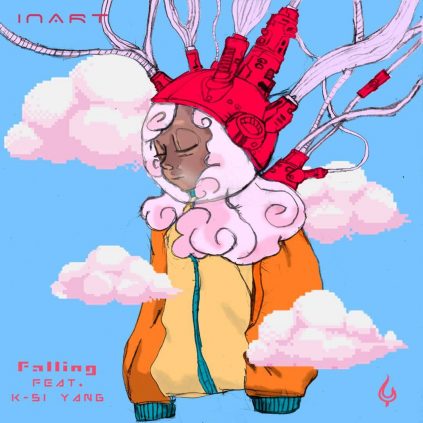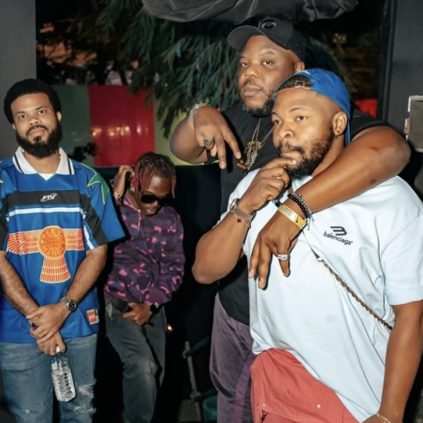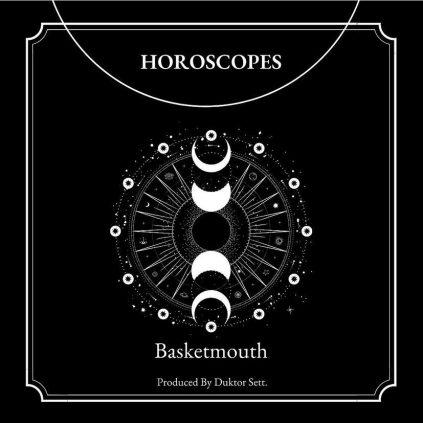Vector intends his latest album to be a statement of his continued virtuosity at the top level of Nigerian rap. A dozen years separates Teslim from his debut album, State Of Surprise, and in that time he has seen a progressive rise to the top punctuated by a number of significant events – including legal squabbles with former record label, Young Shall Grow (that had him arrested twice), a period of beef with fellow rapper M. I. and most notably, fatherhood and the joys and responsibility that come with it.
The last of these features heavily on the LP, but even more than that, Teslim is about his own father, who the LP is named after. Intelligently, the acronym he created for this – The Energy Still Lives In Me – fits hand in glove into the album’s direction, and there perhaps would not have been a better name even if he didn’t need to match it to the word Teslim.
For his daughter’s birthday two days before Christmas in 2020, the ordinarily reclusive singer felt in the mood for a heartfelt missive. There, on the post he made to celebrate on Instagram, rejoicing briefly gave room for mourning, and he revealed his daughter’s existence helped him hang on after his father’s passing, an incident that occurred in July 2017 and kickstarted the creation of this album.
On the LP Vector extends a hand to his late father’s memory, and with his second hand he encloses his children, and these are not two separate topics to be explored but one, a single thread of continuity linking three generations.
Nowhere is this represented so clearly as in “I Need You”, a love letter to his first daughter, Milaré, who is credited with a feature. Production is uptempo and bouncy, to the point of danceability, but his subject matter is a lot more morose.
Vector walks his daughter through his mind, touching on his rough upbringing in the barracks, the core of his personality and of course, his star sign. Not for the first time in music, Vector claims Leo, the “king of the jungle”, and he urges his daughter to discover her star sign and her place in the universe. His father is here in spirit, and in the dying embers of the track, Vector invokes him – “Look your grandpa, but he’s a part of me/ Which is a part of you, which is part of everything you do” – and the multi generational thread is tied in a neat bow. However, this is only the second track of the LP, and as it sets a high bar for strength of its theme and solemnity of performance, it is understandable that no other track is able to cross it. This is not, though, for want of trying.
On the closer, Vector and an admittedly talented choir put a choral spin on “My Name”, his release from earlier this year. He interpolates God’s biblical love that precedes our existence as found in Isaiah or Jeremiah –”You know my name before I was made” with a more African mythological view on the meaning of names and how they determine an individual’s character and/or destiny. The addition of the choir is a nice touch, especially for the spiritual hue of the song and the album in which it appears, but one can’t help but wonder if it is a fair trade for the simple deliciousness of Amapiano on the original.
Other tracks are more in line with what a long time fan would expect from an album signed Vector. Inasmuch as rap music demands of its makers a self-aggrandizing, braggadocious demeanour, in the studio and otherwise, there are some who take this to the next level, and our protagonist will be numbered among them. Ego grows with success, yes, but Vector’s has hardly had room to grow seeing as he already proclaimed himself “legendary” on his first album, essentially disregarding the efforts of the competition and in the same breadth comparing his writing to greats like Chinua Achebe and Wole Soyinka.
A decade later, he no longer feels a need to bring up such names in comparison, he has his own. He will however, not miss a chance to have a go at detractors, and that is what tracks like “Why Me” and “Soki Sombolo” are for. His daughter makes a bigger appearance on the latter, but as it is uncredited this time, and there is perhaps a legal battle to be had there when she lawyers up in about 15 years time.
A Vector album would hardly be complete without social commentary, but perhaps for the first time, his delivery in this aspect is found lacking and the end product comes out a little dull – almost like he relies on the topics of discussion to carry most of the weight without his signature penmanship. Thankfully, they do. On insomnia he walks you through issues that should cause sleepless nights, but don’t because they occur in a country that frankly is a little too good at moving on.
It’s been a full two years since the Endsars killings and prosecutions are yet to be made, while the government has only achieved partial cognizance of events – recognising victims without mention of culprits. Vector wonders how we can function with their deaths hanging over our heads, and he feels this pain even deeper because his activism against SARS precedes it becoming a national topic and twitter hashtag, and especially because his song on the murderous activity of the organisation did nothing to stop the calamitous events of 20/10/20.
But he is undaunted in his advocacy. On the same track he examines other, less talked about, issues, like a building collapse that claimed lives of children and pastors that feed fat off the poor. Where he puts a foot wrong is in the interviews featuring David Hundeyin – a track like this should be truly void of any attempts to personalise the story, and all focus placed solely and incontrovertibly on the victims. “Clowns” with LADIPOE focuses on the incompetent yet intelligently corrupt politicians we’re blessed with, but save for a brilliant line at the end – about how the clowns end up laughing to the bank at our expense – Vector and his guest fall short of their well-documented brilliance.
Other songs with featured artists will produce a mixed bag. He taps up street rappers, makers of the brand of Nigerian rap that incorporates fully all the flavour of traditional music, a contrast to his (and LADIPOE’s) own style that is an untouched continuation of American hip-hop. His recruits, Seyi Vibez and Erigga, hail from opposite ends of the country, but they share the same spirit administered in different vehicles – Yoruba and Warri inflected rap. Their contributions on “Mercy” and “You Don’t Know” respectively, reflect Vector’s awareness of current trends in Nigerian rap, and the smartness to incorporate them.
“Mama Maradona” does not display this level of expertise, and not only because it is sullied by a lack of a proper story. Vector places Wande Coal in the last verse for a poor cosplay as a rapper when the chorus would have benefitted from his legendary voice and songwriting, a mistake that is not repeated on “Mami Wota“ featuring Seun Kuti. “Early Momo” sees him tied with much better chemistry to Good Girl LA, and the inclusion of a track from Valentine’s day of 2021 is justified first by its sheer quality and second by the breath of fresh air a love song brings to the album.
It is telling on Vector that the best song on his album was released nearly two years ago, and that his latest offering lacks the sharp songwriting that has distinguished him in Nigerian rap for over a decade, but he did not make this LP to be more of the same. His true intentions – to honour his father’s memory while leaving a thoughtful, well curated time capsule for his children to discover and savour in the future – are executed with mastery, so that while Vector the Viper has been thoroughly explored in previous projects, we get a chance to take a peek into the life of Vector, the family man.

